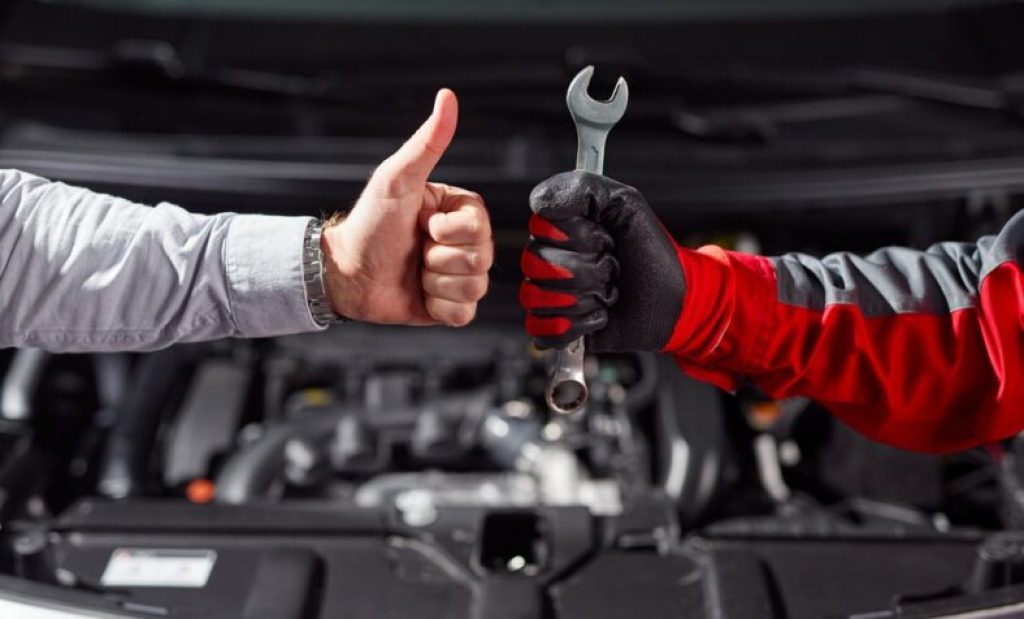How to Reduce the Costs Of Basic Car Repair
Owning a car or any other motorized vehicle undoubtedly has many benefits and can be a lot of fun, but it can also be a pricey hassle at times. Beyond the costs of payments, insurance and keeping it clean, cars also require regular maintenance to ensure smooth functioning.
Related Topics (Sponsored Ads):
Advice Ad Block Content
Advice Ad Block Content
Advice Ad Block Content
Advice Ad Block Content
Staying up to date with regular car maintenance is crucial for keeping your vehicle in optimal condition and preventing hefty repairs down the road. By investing in routine checkups, you can significantly extend the lifespan of your car and ensure its safety and reliability for years to come. Neglecting basic maintenance tasks can lead to more significant problems and expensive repairs that you didn’t fit into your budget. Therefore, it’s essential to understand the importance of regular car maintenance to effectively manage the associated costs.

Common Car Repairs and Their Costs
Car repairs can vary widely in terms of complexity and cost. Some common car repairs and their associated costs include:
~ Brake Pad Replacement: On average, replacing brake pads can cost between $150 and $300, depending on the make and model of your car.
~ Oil Change: An oil change typically costs between $30 and $80, depending on the type of oil and the service provider.
~ Battery Replacement: Replacing a car battery can cost anywhere from $100 to $300, depending on the battery type and the labor involved.
~Tire Replacement: The cost of replacing a tire can range from $100 to $300, depending on the tire brand and size.
~Spark Plug Replacement: Replacing spark plugs can cost between $100 and $200, depending on the number of plugs and the labor involved.
These are just a few examples, and the actual costs may vary based on your location and the specific circumstances of the repair.
Tips for Reducing Car Repair Expenses
To effectively manage car repair expenses, consider the following tips:
-Regular Maintenance: Stick to the manufacturer’s recommended maintenance schedule to catch potential issues early on and avoid costly repairs.
-DIY Repairs: Learn basic car maintenance tasks like oil changes, air filter replacements, and battery checks. Performing these tasks yourself can save you money in the long run.
-Research and Compare: Before choosing a repair shop, research and compare prices. Get multiple quotes to ensure you’re getting the best deal.
-Preventive Measures: Take proactive measures to prevent common car problems. For example, keeping your tires properly inflated can prevent premature wear and tear.
-Warranty Coverage: If your car is still under warranty, be sure to take advantage of any covered repairs to minimize out-of-pocket expenses.
Finding the Best Places for Car Repairs and Maintenance
When it comes to finding the best places for car repairs and maintenance, you have several options.
Dealerships are often the go-to choice for car repairs, especially if your car is still under warranty. However, dealership services can be more expensive compared to other options. Independent Mechanics are another popular choice for car repairs and maintenance. They often provide quality service at a lower cost compared to dealerships.
Alternatively, you can also check out Specialty Shops, which are ideal for specific repairs or maintenance tasks. For example, if you need alignment or suspension work, a specialized shop may offer more expertise.
However, when choosing a repair shop, don’t forget to consider factors like reputation, experience, and customer reviews to ensure you’re getting reliable service at a fair price.
Finding the Best Places for Car Repairs and Maintenance
While car maintenance is necessary, there are cost-saving strategies you can implement on your own:
1. DIY Tasks: As mentioned earlier, learn basic car maintenance tasks and perform them yourself. This includes tasks like replacing air filters, windshield wipers, and light bulbs.
2. Bulk Purchases: When buying supplies like oil filters or windshield wipers, consider buying in bulk to save money in the long run.
3. Comparison Shopping: Compare prices for basic maintenance tasks like oil changes or tire rotations. Some shops may offer discounted rates or special promotions.
4. Regular Cleaning and Care: Regularly clean your car to prevent rust and corrosion. This simple step can save you money on potential repairs.
5. Proper Storage: If you live in an area with extreme weather conditions, consider investing in a garage or carport to protect your car from the elements. This can prevent damage and extend the lifespan of your vehicle.
Keeping Your Car in Optimal Condition
To keep your car in optimal condition and minimize repair costs, stick to the following tips:
-Follow the Owner’s Manual: Adhere to the manufacturer’s recommended maintenance schedule and perform regular inspections.
-Maintain Fluid Levels: Keep an eye on essential fluids like oil, coolant, and transmission fluid. Topping them up regularly can prevent engine damage.
-Check Tire Pressure: Properly inflated tires not only improve fuel efficiency but also prevent premature wear and tear.
-Drive Responsibly: Avoid aggressive driving habits like hard braking and rapid acceleration. These habits can put unnecessary stress on your car’s components.
-Listen to Your Car: Pay attention to any unusual noises or sensations while driving. These could be early signs of a problem that needs attention.
DIY vs Professional Repairs
Last but certainly not least – While DIY repairs can save you money, it’s essential to know when to seek professional help. If you’re not confident in your abilities or if the repair requires specialized equipment, it’s best to leave it to the professionals. Complex repairs, such as transmission or engine issues, are usually best handled by experienced mechanics to ensure the job is done correctly and to avoid further damage.
Related Topics (Sponsored Ads):
Advice Ad Block Content
Advice Ad Block Content
Advice Ad Block Content
Advice Ad Block Content





